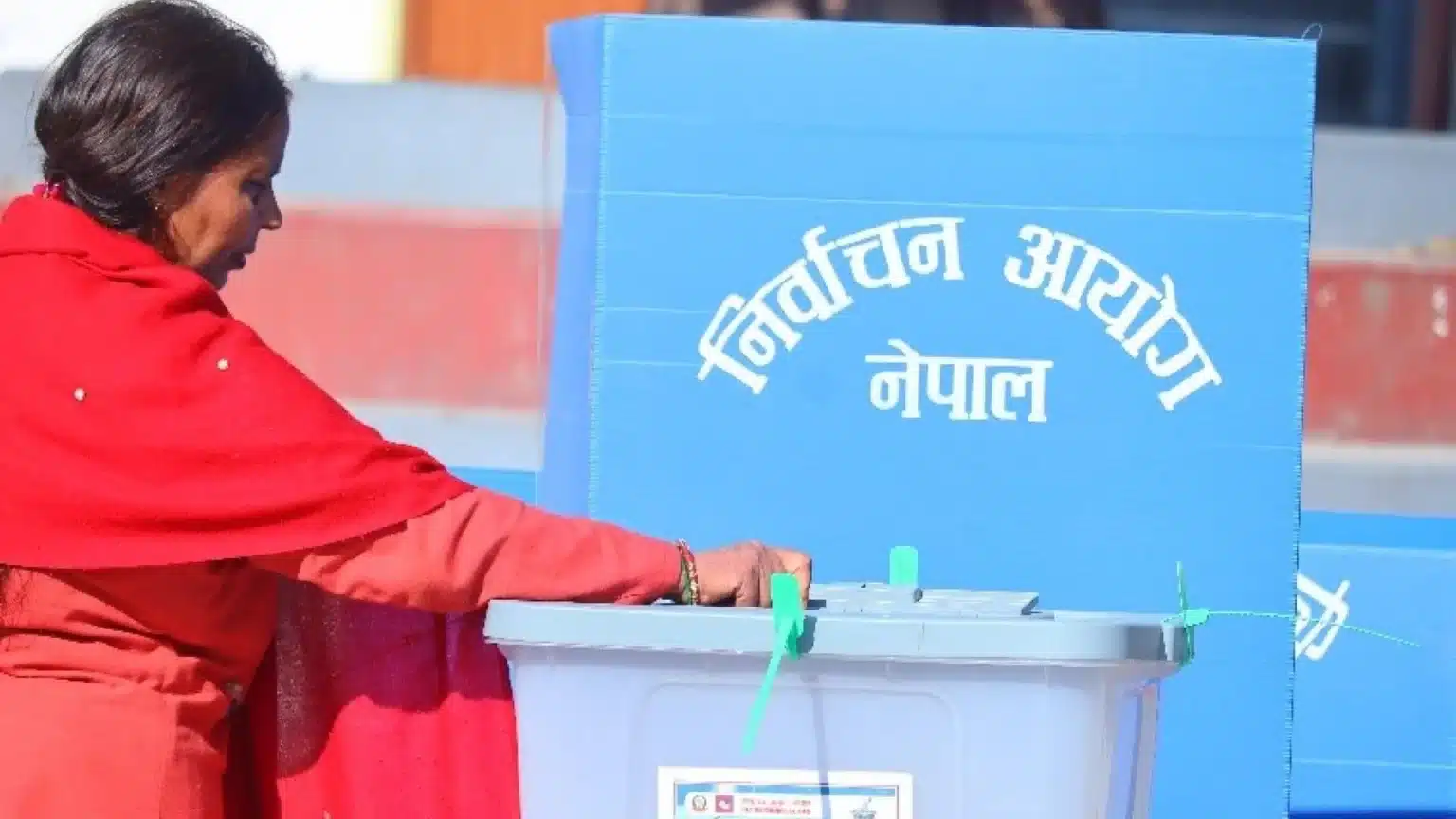The Rashtriya Swatantra party (RSP) which was founded as an anti-corruption initiative in 2022 has set to become the fourth largest party in the Nepal Parliament serving as a major challenge to the traditional political powers in the country.
Rashtriya Swatantra party founder, Rabi Lamichhane surrounded by his supporters (Photo: Twitter/@ party _Swatantra)
Last year when Swarnim Wagle announced on March 30 that he was resigning from the Nepali Congress to join the RSP it came as a shock to the political leadership and analysts as he had once announced that he could never imagine being a member of any other party other than the Nepali Congress with which he had a generational allegiance.
According to some political analysts, his actions expressed a grudge towards the higher authorities of the Nepali Congress for denying him a ticket to contest the November general elections in Nepal following which he joined the Rashtriya Swatantra party which is a new political party that was established only five months before the November elections.
Mr. Wagle is an economist and the former vice-chairman of Nepal’s national planning commission. He has also served as the Chief economic adviser at the UNDP Regional Bureau for Asia and Pacific from 2020 to 2022. He has described the RSP as a movement in the making and stated in an ensuring tone to emerge as a political force in the next elections.
Pushpa Kamal Dayal Prachanda (Photo: Indian Express)
In the 275 seats of Parliament having a coalition government, the RSP has a strong presence with 22 lawmakers.
Minendra Nijal, a former Minister and a central member of the Nepali Congress Party has stated to the media and in public forums that the RSP’s popularity and support is a warning to the traditional and old parties in Nepal. It has primarily emerged as a result of public frustration and discontent with the performance of the traditional parties.
Only a few days after the by-elections, the RSP withdrew its support to the coalition government led by Pushpa Kamal Dahal Prachanda, the Maoist chief.
Experts believe that RSP’s emergence holds much greater importance in Nepal’s Polity. Mr. Sharma, an analyst, stated that the RSP has a long way to go before it evolves as a political party in the true sense. He said that the RSP has shown the possibility of change and that if the party, consisting of a heterogeneous group of people, can act together in coherence, it can grow as a political party and evolve as an institution.
Even though it is a major disruptor in the current political scenario in Nepal and holds the potential to challenge and change the status quo, it still has other parameters to tick. The party has been subjected to certain criticisms over its ideological stance as well as other issues like secularism, federalism, and foreign policy.
RSP’s primary unique selling point (USP) has been its anti-corruption agenda. Nepal is ridden with corruption and misgovernance. RSP seeks to mobilize the people of Nepal on this anti-corruption platform and expand its base and support.
Mr. Sharma and Mr. Rijal, the former minister of Nepali Congress, both have praised the achievements and success of RSP, however, they are cautious with their optimism about the exact impact that the RSP will have on Nepal’s future political field.













